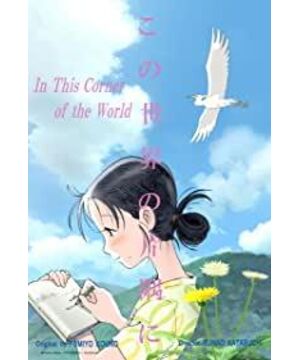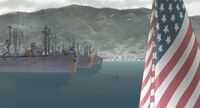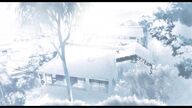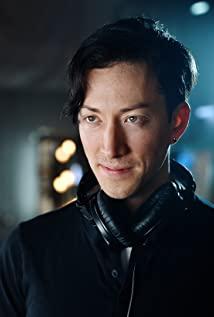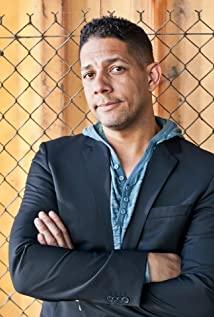Recently, I went to see a movie called "In This Corner of the World" with my Japanese roommate Takeshi Miyake. The content of the movie describes the ordinary life of an ordinary Japanese country woman who lived through World War II.
The story is very simple and depicts the daily life of that era, such as labor, farming, housework, spare time, going to the market to buy things, washing and cooking. These are all very ordinary things. But this ordinary life, because of the war came and gradually disintegrated.
The heroine who loves to paint lost her right hand in an invasion by an enemy, along with her niece and a stable life.
It is said that this is a very popular movie in Japan. It has been well received since it was released in 2016. Many people cried when they saw it. They were moved by the difficult life of ordinary people at that time. This time it is a 3-hour extended version. , Gong Wu invited us to watch it together.
After reading it, I just made some exchanges with him on the topic of World War II, and tried to verify some of my previous conjectures.
One of the points that I think is more informative is that although the Sino-Japanese War with the "Nanjing Massacre" as a specific example is the main impression in the impression of World War II by Chinese young people, in the memory of Japanese young people, the information about World War II is The impression is more between Japan and the United States, such as the Pearl Harbor incident, while China and other countries in Southeast Asia are uniformly classified as "other" outside the United States.
This makes me find it quite interesting. Many Chinese people have been emphasizing not to forget history, not to forget history. However, the same historical events are some irrelevant information in the memory of the Japanese. The two sides are not at the same time. The basis of speaking in terms of frequency, communication is inherently difficult, let alone consensus.
Through this example, my point is not to accuse the Japanese of not taking historical responsibility, but to share that the national memory and consciousness of each country are shaped without knowing it.
For example, although many Chinese people have been emphasizing not forgetting history, on the other hand, some historical events in China are not emphasized, or even deliberately forgotten (the familiar 404), such as three years of natural disasters, the Cultural Revolution, 1988 The period between 1990 and 1990.
Although these are historical details very important to China, they unfortunately do not seem to be part of the national memory.
The "In this Corner of the World" I watched this time, in my opinion, is actually a way of shaping memory and consciousness in Japan, a very subtle way of switching perspectives.
During the war, the nationals of each country were passively burdened with the responsibility and obligations of the war, because each national is an integral part of the country. Therefore, in the wartime situation, it is very difficult for individuals to have real autonomy Having lived an independent and uncontested life, the living space of the individual as an independent individual is continuously compressed and gradually becomes a part of the state apparatus.
But the above common sense in my opinion does not seem to be the consensus of ordinary people. In the movie "In This Corner of the World", the story is described from a very personal daily life, and is narrated with the identity of an ordinary person as the object. , and then presents the impact and harm of war on the lives of ordinary people. The conflict implied by this impact is actually a conflict between a person as a "person" and his "national identity".
War is of course the direct cause of harm to ordinary people, but what I want to explore is what is the more fundamental reason behind this harm? And whether it should be borne by every ordinary person? If so, the reason for assuming it is what?
While many people in the audience will mourn and cry over a civilian being harmed by war, in those moments the individual is actually suffering the harm that his country "assigns" him. In this case, that harm The source of the damage is not so much that the war itself brings the people, it is better to say that this kind of damage is brought to the country by the war, and then the country is apportioned to each citizen.
Wars are not started by citizens, but as a representative government of a country. As an integral part of the country, if the citizens accept the leadership of the country, it means giving up their independent living space, so , The damage caused by the war seems cruel and sad, but in fact, it is also what the protagonist in the story has to accept as a "citizen".
unless…
She does not recognize the state (the government to be exact), or does not recognize the responsibilities assigned to her by the state (the government), and is unwilling to accept this part of the harm, then she can also choose immigration, or elect one by democratic voting The government recognized by itself to represent the operation of the country.
Many times, people do not sort out the relationship between "individual", "government" and "country" very well. They often confuse the relationship between their "personal identity" and "national identity", and then blur and interweave in this identity. expresses chaotic and emotional opinions in a state of
This emotion includes not only the accusation and anger of the Chinese against the Japanese in the past wars, but also the sympathy and sympathy for ordinary people that the Japanese have when watching the film history of "In This Corner of the World".
However, on the other hand, I think "In this Corner of the World" is also a good expression of voice. It reflects the voice of ordinary Japanese people and expresses the most authentic voice and resonance in the hearts of ordinary people. In this The process is actually a process of reshaping the national memory, and ultimately, through democratic voting, the future government and culture of the country can be reshaped.
As for China's national memory and consciousness, if you have friends who are interested, you can complete and shape it yourself.
Other references:
"Have you ever wondered who you are?"
"What is Philosophy?"
"What is Culture?"
"What is History?"
View more about In This Corner of the World reviews


